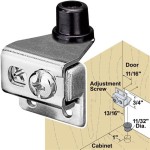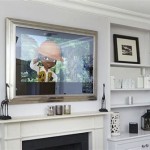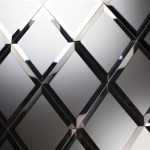Is It Mirror on the Wall or Magic? Decoding the Psychology of Self-Perception and Digital Distortion
The idiom "mirror, mirror on the wall" conjures images of fairytale magic, a mystical reflection revealing hidden truths. However, in the modern digital age, the "mirror" has transformed into a myriad of screens, reflecting not just physical appearances, but curated versions of ourselves. This shift raises important questions about self-perception, the influence of technology, and the blurred lines between reality and digital fantasy.
The Psychology of the Mirror Stage
Jacques Lacan's concept of the "mirror stage" describes a crucial developmental phase where infants recognize their own reflections, forming a sense of self as a unified entity. This initial encounter with the mirror lays the groundwork for self-awareness and shapes how individuals understand their place in the world. The mirror, in this context, becomes a formative tool, influencing body image and identity construction.
The Digital Mirror: Social Media and Self-Curation
Social media platforms function as digital mirrors, constantly reflecting and refracting self-image. These platforms allow users to curate and control their online presence, crafting idealized versions of themselves through carefully selected photos, captions, and interactions. This curated self-presentation can deviate significantly from offline reality, potentially leading to a disconnect between one's authentic self and the projected digital persona.
Filters, Facetune, and the Pursuit of Perfection
The availability of image editing tools like filters and Facetune adds another layer of complexity to the digital mirror. These tools empower users to manipulate their appearance, blurring imperfections, reshaping features, and creating idealized depictions. While some view these tools as harmless forms of self-expression, others argue that they contribute to unrealistic beauty standards and exacerbate body image issues, further distorting the perception of self.
The Impact of Likes and Validation
The social media ecosystem thrives on validation through likes, comments, and shares. These metrics become external measures of worth, influencing how individuals perceive their own value. The pursuit of online validation can reinforce the cycle of self-curation and digital distortion, as individuals seek to present the most "likeable" version of themselves, potentially at the expense of authenticity.
The Illusion of Control and the Performative Self
Social media platforms offer a sense of control over self-representation, allowing users to manage the narratives surrounding their lives. This can lead to a performative aspect of online identity, where individuals consciously or unconsciously adopt roles and behaviors designed to elicit specific responses from their audience. The line between authentic self-expression and calculated performance can become increasingly blurred within the digital realm.
The Echo Chamber Effect and Self-Reinforcement
Social media algorithms often create echo chambers, surrounding users with content and perspectives that align with their existing beliefs and preferences. This can reinforce existing biases and perceptions of self, further limiting exposure to diverse viewpoints and potentially hindering personal growth. The digital mirror, in this context, becomes a distorted reflection, amplifying pre-existing narratives rather than challenging them.
Navigating the Digital Reflection: Cultivating Media Literacy
Developing media literacy is crucial for navigating the complex landscape of digital self-representation. Understanding the mechanisms behind social media algorithms, recognizing the potential for manipulation and distortion, and cultivating a critical approach to online content are essential skills for maintaining a healthy sense of self in the digital age. Furthermore, promoting open conversations about the impact of social media on self-perception can help individuals develop a more balanced and nuanced understanding of their digital reflections.

Magic Mirror On The Wall 217 Framed

Snow White Magic Mirror On The Wall Scene English

Magic Mirror On The Wall Diy Snow White

Snow White And The Seven Dwarfs 1937 Magic Mirror On Wall

Magic Mirror On The Wall Animated Character Database Fandom

Magic Mirror On The Wall Disney Sticker Teepublic

Mirror On The Wall Who Has Biggest Of Them All Magicmirror Forum

Close But The Actual Line From Disney Animated Snow White And Seven Dwarfs Is Magic Mirror On Wall Who True Words Best Quotes

Snow White Evil Queen Magic Mirror On The Wall Cutout

Mirror On The Wall Queen Fantasy Fairietale Magic Hd Wallpaper Peakpx








